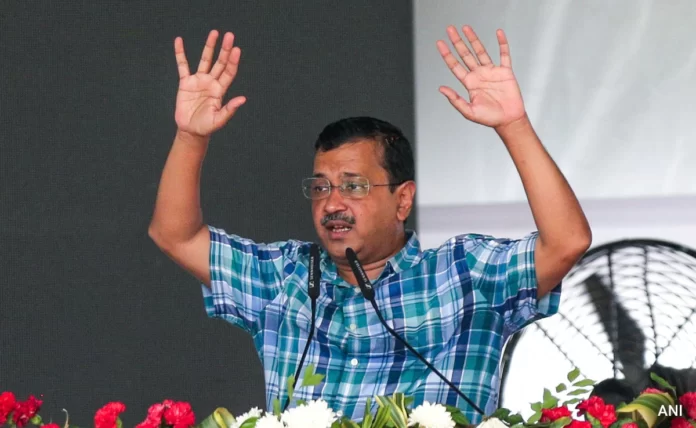Recently, the political theater witnessed a significant development as former Trinamool Congress (TMC) MLA Tapas Roy joined the Bharatiya Janata Party (BJP), drawing sharp reactions from various quarters. However, it was the retort from Delhi Chief Minister Arvind Kejriwal that truly encapsulated the underlying narrative of power politics and the accusations of selective prosecution.
Arvind Kejriwal, known for his outspoken nature and confrontational stance against the ruling establishment, wasted no time in delivering a scathing remark in response to Tapas Roy’s defection to the BJP. Kejriwal’s statement, “Won’t get ED summons if I join BJP today,” not only served as a swipe at Roy’s decision but also raised pertinent questions regarding the perceived protection or preferential treatment afforded to those who align with the BJP.
Tapas Roy’s switch to the BJP was not an isolated incident but rather part of a broader trend witnessed in Indian politics, where individuals, often elected representatives, change their allegiance to align with the party in power or one deemed to be in an advantageous position. While such moves are not uncommon, they invariably invite scrutiny, especially when juxtaposed against the backdrop of ongoing political rivalries and allegations of coercion or inducement.
The timing of Tapas Roy’s entry into the BJP further fueled speculation, considering the heightened political tensions in West Bengal, where the ruling TMC and the BJP have been engaged in a bitter feud. With crucial state elections looming on the horizon, every defection is perceived as a strategic maneuver aimed at consolidating power and undermining opponents. In this context, Kejriwal’s jibe assumes significance as it not only criticizes the act of switching sides but also underscores the perceived impunity enjoyed by those affiliating with the BJP.
The mention of the Enforcement Directorate (ED) in Kejriwal’s remark adds another layer of complexity to the narrative. The ED, a central investigative agency tasked with probing financial crimes and enforcing economic laws, has often been accused of being wielded as a political tool to target opposition leaders. Instances of selective targeting, where individuals associated with non-BJP parties face heightened scrutiny or legal action, while those aligning with the ruling dispensation evade similar consequences, have been cited as evidence of institutional bias.
Kejriwal’s insinuation that joining the BJP could serve as a shield against potential legal troubles reflects the prevailing sentiment among opposition parties and critics regarding the perceived misuse of state apparatus for political ends. The remark resonates with a broader narrative of systemic inequalities and partisan interventions that undermine the democratic principles of fairness and impartiality.
Moreover, Kejriwal’s comment underscores the erosion of trust in institutions and the politicization of law enforcement agencies, where allegiance to a particular party appears to influence the course of justice. Such perceptions not only erode public confidence in the efficacy of democratic institutions but also undermine the rule of law, casting a shadow of doubt over the fairness and integrity of the political process.
The incident involving Tapas Roy’s defection and Kejriwal’s response serves as a microcosm of the larger dynamics at play in Indian politics, where power struggles, ideological battles, and allegations of malfeasance converge to shape the narrative. As parties vie for supremacy and individuals navigate the murky waters of political expediency, the lines between principle and pragmatism often blur, leaving citizens disillusioned and skeptical of the motives driving their elected representatives.
In addition, Arvind Kejriwal’s swipe at Tapas Roy’s decision to join the BJP encapsulates the underlying tensions and contradictions inherent in Indian politics. The remark not only highlights the perceived favoritism enjoyed by those aligning with the ruling party but also underscores the broader concerns regarding institutional integrity and democratic norms. As the political landscape continues to evolve, such incidents serve as a stark reminder of the imperative to uphold the principles of transparency, accountability, and fairness in the conduct of public affairs.

